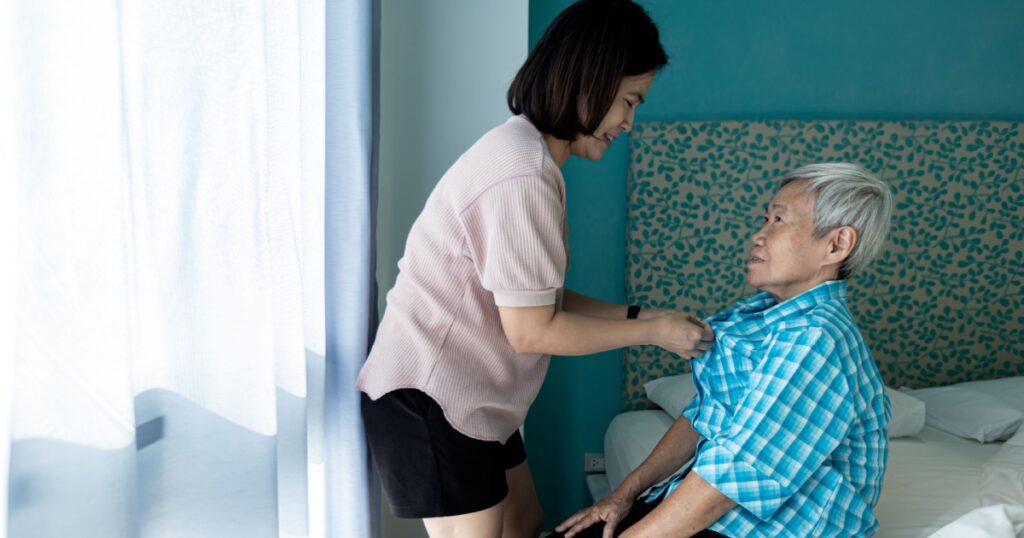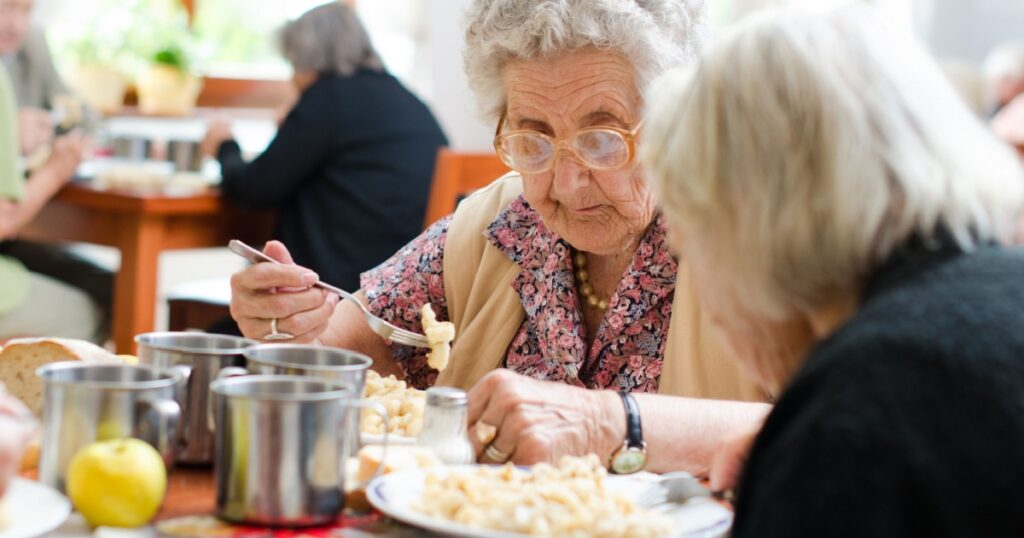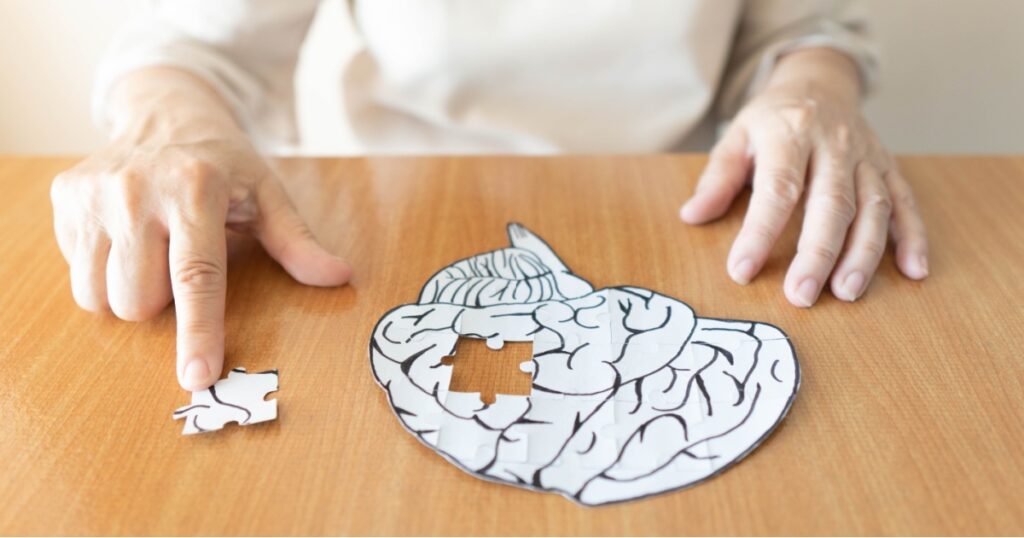Caring for a loved one with dementia can be an emotionally and physically challenging endeavor. But with the right strategies and support, caregivers should be able to provide compassionate care while also being sure their loved ones are treated with dignity and respect. Let’s explore seven practical tips and effective strategies for caring for someone with dementia:
1. Embrace the Person Beyond the Disease

First and foremost it is the most important to see the person beyond the symptoms and recognize their inherent worth and identity. As Angela Lunde, M.A., states, you should “focus on having positive interactions with encouraging smiles and hugs that remind them they are the person you know and love.” Be sure to engage in activities that bring joy and connection, reinforcing a sense of self and value within the relationship.1
Read More: Dutch town was built just for people with dementia and it helps uphold their sense of independence
2. A Consistent Routine

Having a predictable routine can create security and stability for those with dementia. Have a plan of regular activities, meals, and rest periods to create structure and familiarity for everyone. Also being sure to incorporate physical activity and quiet time into the day can promote well-being and reduce agitation. Just don’t nap for too long.
3. Simplify Daily Tasks and Environment

Having a simpler environment and set of daily tasks can minimize stress for both the caregiver and anyone with dementia. Try to opt for easy-to-use clothing and remove hazards and clutter to create a safe home environment. Angela M. Lunde advises, “Keep stress-inducing clutter to a minimum and take steps to ensure a safe home environment.”
4. Understand and Address Behavioral Changes

You’ll need to be vigilant when it comes to behavioral changes, as they may indicate unmet needs or emotional distress. Active listening and observation are key to recognizing signs of frustration, pain, or boredom. If you can address underlying issues and provide reassurance, you should be able to alleviate anxiety and promote a sense of security.
Read More: 15 factors that may raise risk of getting early dementia, according to study
5. Foster Autonomy and Respect Choices

You can better respect the autonomy of individuals with dementia by asking them if they’d like two be involved in decision-making and daily activities. Offer choices whenever possible, allowing them to maintain control and dignity. Dementia is already a control-wrenching disease, so any control you can give back to them will go a long way. Angela M. Lunde advises that you should “allow the person maximum autonomy with daily tasks such as bathing, dressing, and eating.”
6. Engage in Meaningful Activities Together

Activities that promote engagement and connection will foster a greater sense of partnership and enjoyment between everyone involved. This is not a dementia-specific approach; teamwork often helps build a sense of camaraderie. Whether you’re going for walks together, maybe gardening, or listening to music, having shared experiences enhances emotional well-being and strengthens the caregiver-patient relationship.
7. Practice Effective Communication

Make sure you always communicate with empathy and patience (as you should in all relationships), and make offers to understand the challenges individuals with dementia may have in expressing themselves. Use clear language, keep a calm demeanor, and make sure to validate their feelings and experiences. As stated on alzehmiers.gov, “Reassure the person. Speak calmly. Listen to his or her concerns and frustrations.”2
Final Thoughts

Caring for someone with dementia requires compassion, patience, and a thorough understanding of their needs. Being able to embrace the person beyond the disease, establish simple daily routines, and foster autonomy will all enhance the quality of life for both themselves and their loved ones. With these strategies, you’ll be able to navigate the challenges of dementia with grace, empathy, and a shared sense of well-being.
Read More: If You Notice This While Brushing Your Teeth, It Could Be a Sign of Dementia
Sources
- “Eight strategies for caring for someone with dementia.” NBC News
- “Tips for Caregivers and Families of People With Dementia.” Alzheimers

